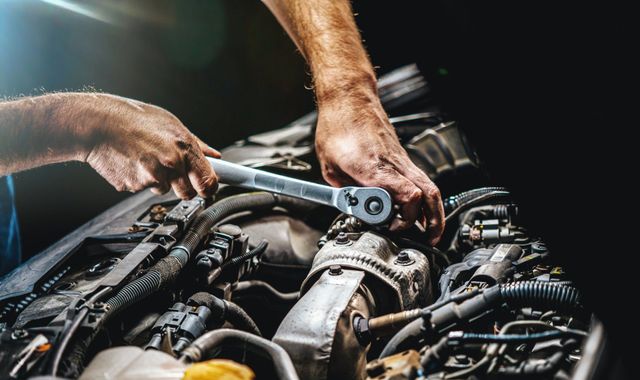All Categories
Featured
Preparing your car for a long-distance road journey is vital to ensure safety and security, comfort, and performance throughout the trip. Whether you're headed for a weekend trip or a cross-country experience, seeing to it your vehicle remains in leading problem can stop unforeseen problems and maintain you on the road. Right here are vital steps to guarantee your vehicle awaits long-distance travel.
![]()
![]()
Conclusion. When it comes to long-distance traveling, a little prep work goes a lengthy means. By examining your automobile's fluids, checking the tires and brakes, and ensuring the battery and air conditioning system are working properly, you can reduce the risk of unexpected failures. Pack an emergency situation kit, plan your route, and consider a pre-trip assessment for additional assurance. With the ideal precautions in position, you can hit the trail confidently and enjoy your travels without the worry of vehicle-related issues. Safe takes a trip!
- Perform an Extensive Liquid Check. One of the most essential checks prior to any kind of long-distance drive is guaranteeing all vital liquids are at the correct degrees. Examine your engine oil, transmission liquid, coolant, brake fluid, and windshield washer fluid.
- Check the Tires for Use and Appropriate Rising Cost Of Living. Check the tire pressure and inflate them to the advised levels to make certain ideal fuel performance and handling. Check the step depth to make certain your tires can grip the road correctly, especially in unsafe or wet problems.
- Check the Battery's Health. Additionally, inspect the battery's charge and age-- if the battery is over three years old, consider changing it to stay clear of potential failing throughout your journey. Some automobile parts stores supply complimentary battery testing, which can give you peace of mind before striking the roadway.

- Make Certain the Cooling System Is Functioning Appropriately. The air conditioning system maintains the engine from overheating, so it's crucial to check that it's working appropriately prior to a long drive. Evaluate the radiator for any leakages or damages and inspect the coolant degrees. Top it up with a mix of antifreeze and water according to the producer's recommendations if the coolant is reduced. Overheating can ruin an engine promptly, so if you're unclear about your lorry's air conditioning system, take into consideration having it checked by an expert technician prior to leaving.
- Check the Brakes. The problem of your brakes directly impacts your safety, particularly on lengthy trips where you'll be driving at broadband. Listen for any strange noises, such as grinding or squealing, which might show that the brake pads are broken. Likewise, check the brake liquid degree and make certain it's at the optimal level. It's crucial to have them evaluated and fixed prior to heading out. if your brakes really feel soft or unresponsive when you push the pedal.
- Examine Your Lights and Signals. Make sure all your vehicle's lights, including headlights, taillights, brake lights, and transform signals, are working appropriately. Additionally, tidy your headlights and taillights to make sure maximum presence, particularly in wet or foggy problems.

- Pack an Emergency Situation Kit. Despite the most effective preparation, emergencies can occur. Always pack an emergency kit with necessary things, including an emergency treatment kit, flashlight, jumper cords, tire-changing tools, and an extra tire. Likewise, include basic materials such as bottled water, non-perishable treats, and a covering in instance you end up stranded. Having these items available can make a tough scenario much a lot more manageable.
- Plan Your Path and Rest Stops. Mapping out your route in advancement is essential to an effective long-distance journey. Utilize a GPS or mobile phone app to check for building or roadway closures, and identify hassle-free remainder stops for fueling and extending your legs. Plan for routine breaks to prevent exhaustion and keep you alert while driving. Knowing where to stop along the road can assist you avoid unneeded detours or tension.
- Schedule a Pre-Trip Examination. If you're unsure regarding the condition of your car or desire a professional viewpoint, consider arranging a pre-trip evaluation at a car shop. A mechanic can execute a thorough check, guaranteeing everything is in excellent working order before you leave. This action is especially crucial if you're taking a longer trip or driving in unfamiliar locations.
Conclusion. When it comes to long-distance traveling, a little prep work goes a lengthy means. By examining your automobile's fluids, checking the tires and brakes, and ensuring the battery and air conditioning system are working properly, you can reduce the risk of unexpected failures. Pack an emergency situation kit, plan your route, and consider a pre-trip assessment for additional assurance. With the ideal precautions in position, you can hit the trail confidently and enjoy your travels without the worry of vehicle-related issues. Safe takes a trip!
Latest Posts
Encouraging Young people with WyHy's Financial Tools
Published Apr 19, 25
1 min read
Boost Your Home with Automatic Gates
Published Apr 19, 25
1 min read
About Us: Learn More The Services at Montclare Auto Repair and Our Trusted Solutions
Published Apr 19, 25
2 min read